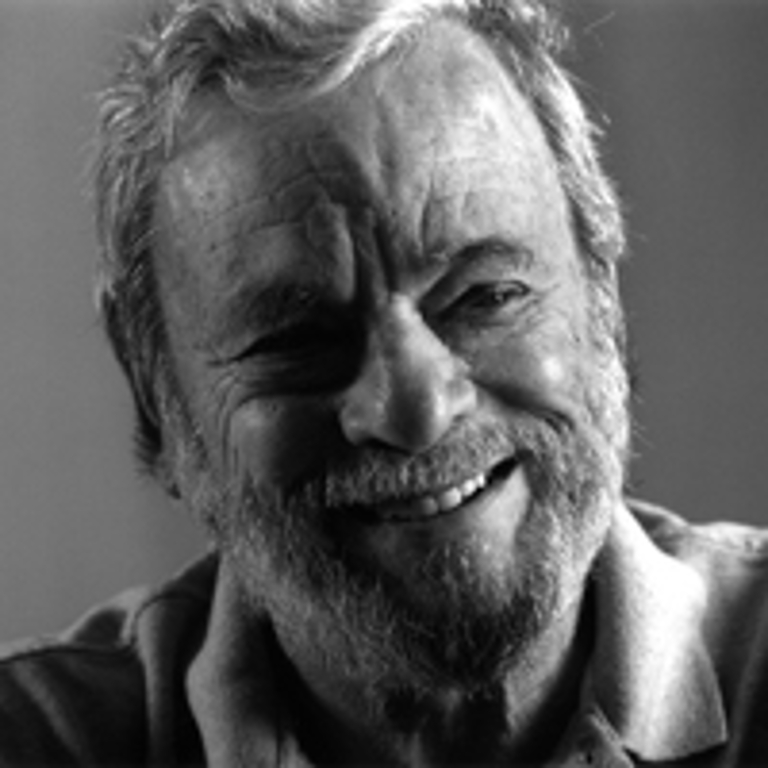The composer and lyricist Stephen Sondheim is the most important artist to work in the American musical theater over the past half-century. He has not only collaborated on more than a dozen landmark shows and written countless standard songs but has also been the single most influential force in bringing the Broadway musical into the modern age.
That journey began when Sondheim was still in his 20’s and contributed the lyrics to two classic collaborations with the playwright Arthur Laurents and the director-choreographer Jerome Robbins, "West Side Story" (1957; music by Leonard Bernstein) and "Gypsy" (1959; music by Jule Styne). Both shows have been repeatedly revived on Broadway and throughout the world. Daring and unorthodox for their time, they now are universally seen as twin pinnacles of the post-war Broadway musical.
Sondheim’s first produced Broadway show as both composer and lyricist, "A Funny Thing on the Way to the Forum" (1962), had an even longer Broadway run than its predecessors. His next musical, "Anyone Can Whistle" (1964), an experimental piece that lasted only a week on Broadway, lives on through its inventive songs, many of which have since become staples in the American pop and cabaret repertoire. He next collaborated with Richard Rodgers on "Do I Hear a Waltz?" (1965). In 1966, Sondheim wrote a made-for-TV musical, "Evening Primrose," for the ABC network.
With such collaborators as the director Harold Prince, the director-playwright James Lapine and the playwrights John Weidman, Hugh Wheeler, Burt Shevelove and George Furth, Sondheim would go on to create a remarkable succession of groundbreaking musicals: "Company" (1970), "Follies" (1971), "A Little Night Music" (1973), "The Frogs" (1974), "Pacific Overtures" (1976), "Sweeney Todd" (1979), "Merrily We Roll Along" (1981), "Sunday in the Park with George" (1984), "Into the Woods" (1987), "Assassins" (1990) and "Passion" (1994). His most recent show, "Bounce" (2003), is being produced in a revised version, titled "Road Show," at the New York Shakespeare Festival in late 2008.
As Sondheim’s lyrics have entered the American language – from "Everything’s Coming Up Roses" to "Send in the Clowns" – so his music liberated Broadway from traditional songwriting conventions. It is impossible to find a new musical of artistic ambition today that hasn’t been influenced by his breakthroughs in remaking the rules that once governed the traditional Broadway musical.
Sondheim learned those rules from a master, Oscar Hammerstein II, a family friend who started mentoring him when he was in his teens. Sondheim’s first Broadway job was as a gofer on "Allegro" (1947), an experimental work that Rodgers and Hammerstein wrote between "Carousel" and "South Pacific." Though "Allegro" was a Broadway failure, its impact on Sondheim’s iconoclastic vision for the theater was large.
Sondheim’s first musical for Broadway, "Saturday Night," written in 1954, remained unproduced until a successful Off Broadway premiere in 1997. He also wrote the scores for the Alain Resnais film "Stavisky" (1974) and Warren Beatty’s "Reds" (1981) as well as songs for Beatty’s "Dick Tracy" (1990), among other movies.
Sondheim was born in 1930 in New York and is a graduate of Williams College. He studied musical composition with the composer Milton Babbitt. His works, even those that initially had brief Broadway runs, are in constant revival in New York, London, throughout America and around the world. His songs have been anthologized in hit Broadway and West End revues, including "Side by Side by Sondheim" and "Putting It Together." Many of his musicals have been made into movies, including, most recently, the Tim Burton-directed adaptation of "Sweeney Todd."
Sondheim has been a major force in the Dramatists Guild and Young Playwrights. Inc., two organizations that champion writers in the theater. He has won every conceivable award: the Kennedy Center Honors, the Pulitzer Prize, two Grammys, an Oscar and eight Tonys, including a special award for Lifetime Achievement in the Theater in 2008. His screenplay for the movie mystery "The Last of Sheila," co-written with Anthony Perkins, won the Edgar Award for Best Motion Picture Screenplay from the Mystery Writers of America in 1974. Sondheim was elected to the American Academy of Arts and Letters in 1983. In September 2008 Sony BMG Masterworks released the CD-set, Stephen Sondheim: The Story So Far – a four CD box set, this collection contains music from Sondheim’s Broadway shows, film scores, television specials, incidental music and previously unreleased recordings as well as photographs from his personal archives.

 The College of Arts
The College of Arts